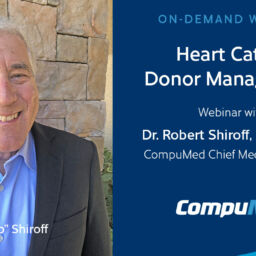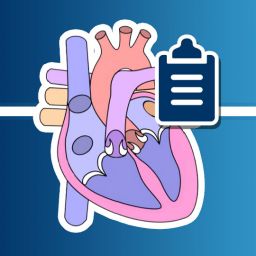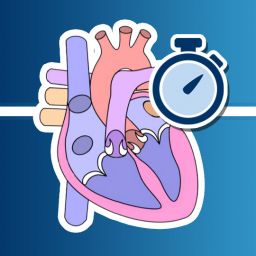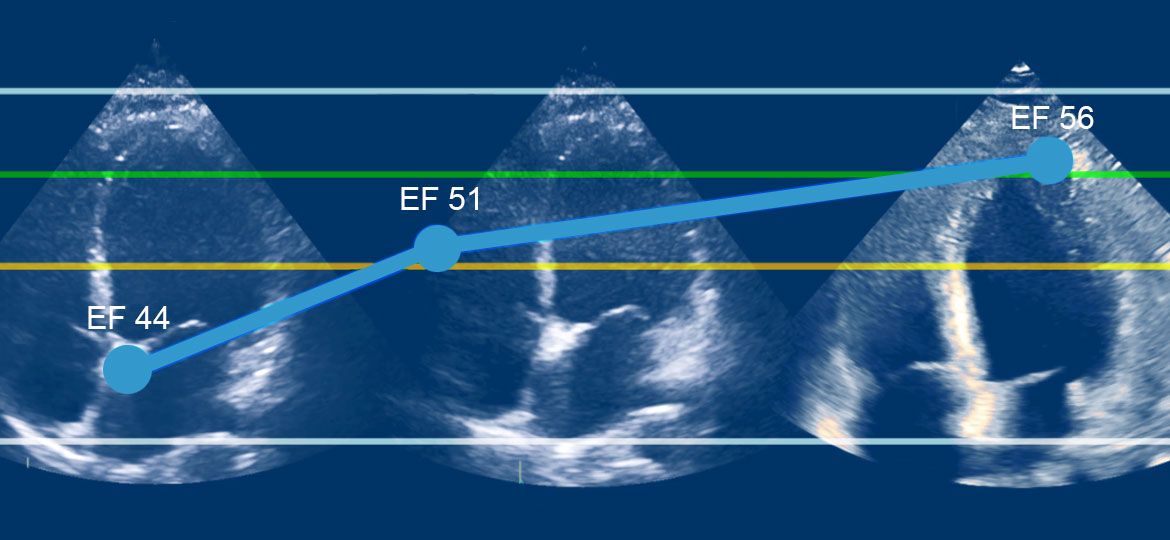
Over years of collaboration with OPOs, CompuMed has supported and encouraged the use of serial echocardiograms to enhance donor management and expand the pool of transplantable hearts nationwide.
Why? Because we know the heart has the ability to recover.
“There is an expectation that left ventricular systolic function, or the ability to pump blood to the body, will improve with time in a brain-dead individual or even possibly a DCD (donation after circulatory death) patient,” says Dr. Robert Shiroff, CompuMed’s medical director.
CompuMed believes serial echocardiograms can improve decision-making and outcomes in heart donation and transplantation. This article addresses three questions to help your team feel more confident in the idea of tracking a heart’s progress over time: What are serial echocardiograms? When are they beneficial in donor management? And how can they improve an OPO’s transplant rate and help save more lives?
What are serial echocardiograms?
Serial echocardiograms are a series of heart ultrasounds performed at intervals, such as every six, 12 or 24 hours. These “snapshots” allow cardiologists to observe changes in the heart’s structure and function over time.
A critical focus of an echo is left ventricular ejection fraction (LVEF), which measures how effectively the heart pumps blood out of the left ventricle. In a healthy heart, LVEF is generally between 55-70%. By comparing LVEF over time, serial echocardiograms can reveal whether a heart is recovering or if the damage is too severe.
When are serial echocardiograms beneficial in donor management?
Serial echocardiograms are most beneficial when the heart can recover. Unfortunately, there is no database to say what patients experience the greatest instances of heart recovery, so there’s no easy answer for when to do serial echocardiograms on a potential organ donor. To answer that question, we must look at other factors, such as downtime, the period when blood flow to the heart is disrupted.
“This is the biggest, most important factor,” says Dr. Shiroff. “We want to look at how long they were down and the cause of that downtime.”
A shorter downtime, such as 30 minutes or less, can increase the chance of a heart recovering.
Another factor is the likelihood of reversible dysfunction. Suppose the heart’s injury is secondary to an issue such as a brain bleed, overdose or Takotsubo cardiomyopathy (also known as broken heart syndrome). In that case, serial echocardiograms may help prevent ruling out a donor heart that could recover enough for transplant.
How can serial echocardiograms improve our transplant rate?
Case studies can help us understand how serial echocardiograms lead to better transplant outcomes. In an expert webinar titled “How Serial Echocardiograms Can Improve Utilization,” Dr. Shiroff shares multiple case studies, including one involving a patient he remembers as being the victim of a gunshot wound to the head.
“On this case, there were three echocardiograms read over 77 hours,” says Dr. Shiroff.
The first echo was read as 20-25% percent LVEF, and the next echo, completed several hours later, was read as 40-45%.
“[In the second echo], you can see a more vigorous contraction,” says Dr. Shiroff.
The third echo was read at 50-55%, which most transplant centers will say is acceptable for a heart transplant.
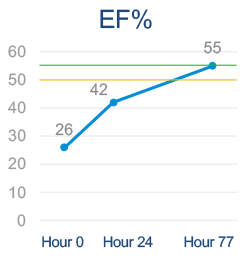
As Dr Shiroff notes: “You can ballpark that and see how much better it is.”
There are times when it’s okay to skip serial echocardiograms.
While we believe serial echocardiograms can help determine whether a donor heart is viable for transplant, there are times when it’s okay not to do them. For example, let’s say there’s no need for further testing. As Dr. Shiroff explains: “If the initial echo shows the heart is transplantable, there’s no reason to repeat an echo.”
Other reasons you might skip serial echocardiograms:
- Hospital resistance. This can come down to technician availability and time.
- Cost considerations. These considerations may include financial costs, such as the cost of doing an echo or ICU utilization, and the cost of the study, such as delaying the opportunity for other organs, like the kidneys, to be transplanted.
- Legal considerations. There are times when an investigation into the cause of death may complicate donor management.
- Social issues. A donor’s family members may not be comfortable watching their loved one remain on a ventilator while awaiting surgery.
While these are valid considerations, completing serial echocardiograms when possible can offer valuable insight into a donor heart’s potential for recovery, enabling better decision-making during the time-sensitive transplant process.
If you feel a case would benefit from serial echocardiograms, CompuMed is here to support you.
More Resources for You
Hear more insight about serial echocardiograms and donor management from CompuMed’s Dr. Shiroff in this on-demand webinar, “How Serial Echocardiograms Can Improve Utilization.”
Did you know? CompuMed can train your OPO team members to perform echocardiograms. We can work together to increase the efficiency and timeliness of donor heart evaluations.
If you’re suffering from inconsistent cardiology interpretations, the CompuMed team can help. Learn more about how our small core reading group and innovative AI technology can help standardize reports for you and your transplant center partners.



